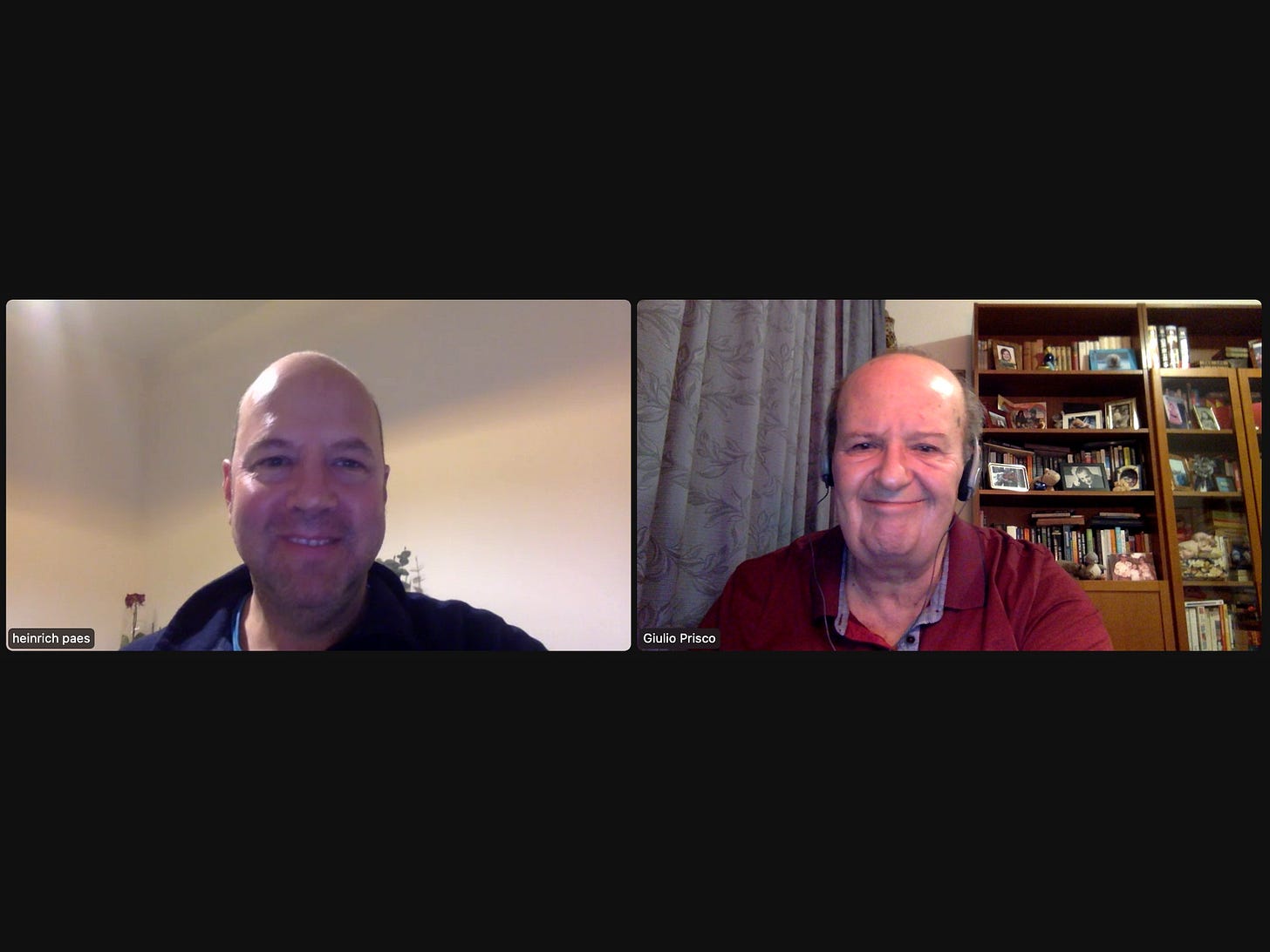This is a conversation with Heinrich Päs, the author of “The One: How an Ancient Idea Holds the Future of Physics,” to be published next week. See my book review. His previous book “The Perfect Wave: With Neutrinos at the Boundary of Space and Time” was published in 2014.
This video is also on YouTube, and the audio-only version is in the Turing Church podcast.
These are the questions I had prepared:
Before talking about your new book, let’s talk a bit about your previous book. Do we have new intel on neutrinos that travel to the past of our brane-world going through the multi-dimensional bulk space of string theory?
In an interview with your research team, your colleague Thomas Weiler said: “Perhaps in the distant future, we will evolve so that our consciousness resides in a ball of sterile neutrinos. Then we can teletransport ourselves.” This sounds like cosmist transhumanism on steroids. Could you comment?
Would this imply that future humans could migrate outward into the bulk or other branes, travel in time, and resurrect the dead from the past by copying them out?
Let’s move to your new book. What is your interpretation of Everett’s interpretation of quantum mechanics? One big world or many small worlds? And what about the “many-minds” concept?
Shouldn’t Dieter Zeh have received a Nobel Prize in Physics for his pioneering research on decoherence? Was he ever a candidate (that you know of)?
You describe decoherence with word pictures for the general public. Could you say a bit more for those who have done some more reading on mathematics and quantum physics?
Could the physically real worlds be only a subset of the Everett worlds? For example, could high probability worlds absorb low probability worlds like a big soap bubble absorbs a small one, as suggested by Robin Hanson?
Where do you stand on determinism and free will?
You say that we are like frogs or ants that are trapped on a surface and experience reality locally and time after time, as opposed to a theoretical global view of reality all at once (bird’s view in Tegmark’s words, or God’s-eye view in Wilczek’s words). Could bird-like or God-like beings exist?
If so, being a bird or a God seems kind of boring because nothing happens! Sure I’m wrong, but where? Perhaps a bird or a God would experience change in another time-like direction sideways?
What is the “preferred basis problem” and what is your solution to the problem? Could the solution be related to consciousness?
You suggest that there could be “parallel multiverses in different bases” and “quantum aliens” with entirely different ways to experience their reality. Could you say something more about this, and could we ever communicate with those quantum aliens?



